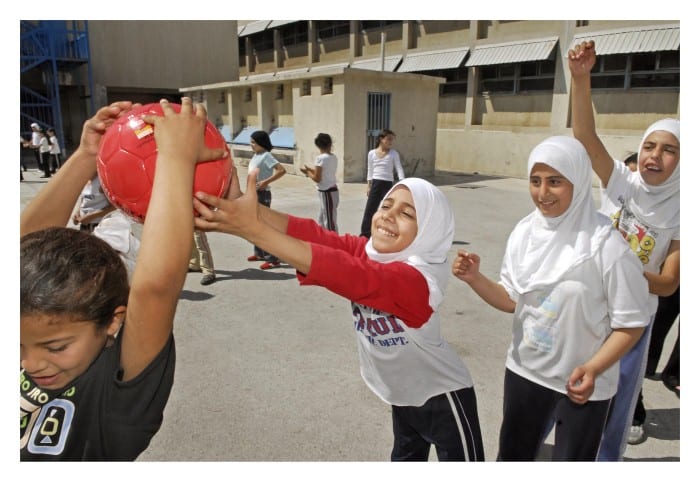Written by: Karan Saggi, CMC ‘14. Karan holds a Bachelor’s in Economics and Leadership Studies from Claremont McKenna College. He writes about leadership, Industrial-organizational psychology, and nonprofits. Currently, he serves as the Director of Educational Partnerships at TryMyUI where he builds engagement between higher education and the UX industry.
Sportsmanship transforms individuals. Teamwork, discipline, and trust are only some of the traits expected of a committed sportsman. Right To Play, founded by Norwegian Olympic speed-skating champion Johann Olav Koss, uses the transformative power of sport to educate and empower children facing adversity. Koss’ vision and leadership have received global acclaim, including the 2013 Kravis Prize. The organization successfully delivers quality education and health by infusing play into the lives of underserved children. Recent research looks into the possibility that sports could lead not only to personal transformation but also to national reform.
On a national level, sports may be instrumental in eradicating corruption and dishonesty — the two root causes of many social and political issues of the world. In the book Top Dog: The Science of Winning and Losing, authors Bronson & Merryman turn their heads to Robert Washington of University of Chicago, who “is considering the possibility that, in countries without institutionalized sports, there is more corruption. In countries with more organized sports, there’s less corruption.”[1] They write that “honest sporting events don’t merely reflect the more ethical approach of the nation. Instead, the organized sports might be the actual cause of the countries’ honesty.”[2]
Consider 175 Grams, which is a short film directed by Bharat Mirle and Aravind Iyer that showcases how playing Frisbee uplifts underserved communities in Chennai, India.[3] Last year, the Sundance Institute Short Film Challenge, sponsored by the Bill and Melinda Gates Foundation, recognized 175 Grams as it was most aligned with the submission criteria of “an optimistic story about individuals and communities who are overcoming poverty and hunger, combating disease, or improving health.” 175 Grams echoes Robert Washington’s notion that sports can empower individuals as well as nations. According to Merle, “When someone from the slums plays the game, they see the world differently and they see the opportunities that lie before them. It has a huge mental impact on them—a better life ceases to just be some dream, it becomes real.”[4]
There is more to the story than what the short film portrays at first showing. On screen, 175 grams shows youth stepping away from the troubles of underserved communities to indulge in one common passion of sport. In return, we watch as they hone their skills of team play, communication, and integrity, and in fact, develop competencies of authentic leaders. A few minutes into the film, we realize how play can be instrumental to national reform.
Similar results are seen in the impact of Right To Play. With both 175 grams and Right To Play, we see boys and girls play and grow together. Between the adrenaline rushes of each Frisbee throw or ball toss, political and social issues of class, gender, or race diffuse and eventually disappear. In its stead, we see equality in gender roles, trust amongst teams, and transparency in action. All players respect the candid calling out of fouls or breaking of rules. Institutions have much to learn from this behavior. The character of these youth, if replicated into their workforce and lifestyle off the field, could transform institutions to be less corrupt and more honest.
In fact, this transformation may already be in progress in countries served by Right To Play. The impact of the organization is commendable and might be more far-reaching than we expected. Well worthy of global acclaim, it is best praised in their own words: When every child plays, the world wins.
Read more about Johann Koss here, or visit Right To Play’s website at RightToPlay.com
[1] Karen, D. and Washington, R. E. , 2011-08-20 “Bringing Sport Back In: Sport as a Model of Meritocracy: Theoretical Implications and a Research Agenda” Paper presented at the annual meeting of the American Sociological Association Annual Meeting, Caesar’s Palace, Las Vegas, NV Online <APPLICATION/PDF>. 2014-11-25 from http://citation.allacademic.com/meta/p504300_index.html
[2] Bronson, P., & Merryman, A. (2013). Top dog: The science of winning and losing. Random House.
[3] http://www.sundance.org/blogs/news/sundance-institute-short-film-challenge-world-premieres-international-shorts-at-2015-sundance-film-festival
[4] http://www.fastcocreate.com/3041391/ultimate-frisbee-makes-an-indian-filmmakers-sundance-dreams-come-true

